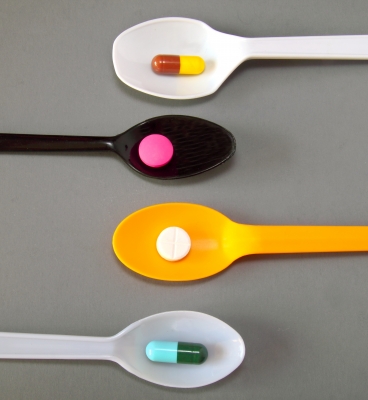The Spoon Theory – Explaining IBD

Finding a way to explain a chronic illness to people can be a frustrating process. From the outside, you can look perfectly healthy as you get on with your daily tasks, or be laughing along with everyone else. But inside, you might have the feeling of a thousand tiny knives stabbing away at you, or be mentally keeping a tally of any public bathroom you see.
For IBD patients, and people with other chronic ‘invisible’ diseases, there is another level of thought that has to happen as you consider what your body is capable of that day.
Christine Miserando, an American writer and Lupus patient advocate, found a unique way of explaining just what it felt like to have a chronic illness to someone who may never have experienced it – spoons.
Faced with a friend asking what it was like to live with Lupus, Christine started explaining the aches, pains and other symptoms she dealt with on a daily basis. But she soon realised just explaining was not enough; her friend needed to experience it.
“How do I explain every detail of every day being affected, and give the emotions a sick person goes through with clarity? I could have given up, cracked a joke like I usually do, and changed the subject, but I remember thinking if I don’t try to explain this, how could I ever expect her to understand?
“At that moment the spoon theory was born. I quickly grabbed every spoon on the table; hell, I grabbed spoons off of the other tables. I looked at her in the eyes and said “here you go, you have Lupus.”
The spoon theory, which you can read in full here, uses a handful of spoons to explain how every action taken by someone facing a chronic illness represents a ‘spoon’. While a healthy person may have an unlimited number of spoons, the chronically ill only get a certain number of spoons per day, and once they are all gone then that’s it – no more spoons (or energy) for the rest of the day.
“I asked her to list off the tasks of her day, including the most simple. As she rattled off daily chores, or just fun things to do; I explained how each one would cost her a spoon.”
Some days you might have more spoons than others and be able to achieve more. But on others you might have to borrow tomorrow’s spoons, knowing that you’ll be left with less for the next day. You might have to choose between making dinner and getting the household chores done, or between seeing a friend and making it to an evening class.
“It is in that lifestyle, the difference between being sick and healthy. It is the beautiful ability to not think and just do. I miss that freedom. I miss never having to count spoons.”
Figuring out what you want to spend your spoons on means sufferers of chronic illness are all too aware of the importance of time. IBD sufferers try to make the most of every opportunity because spoons are precious.
Christine told her friend she had learnt to always keep one spoon in reserve for when she really needs it. When she chooses to spend that spoon on someone, they know she really values them because spoons are not that easy to come across.
How many spoons do you have today, and what are you going to spend them on?